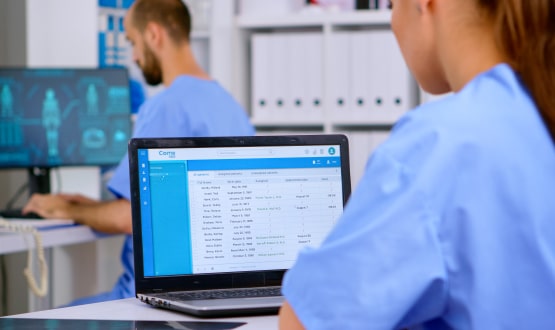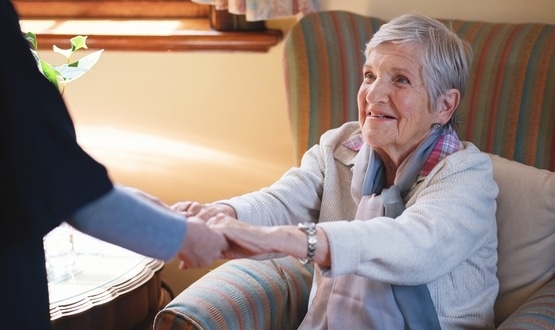St George’s first with the NEWS
- 7 August 2015

St George’s Healthcare NHS Trust is piloting the use of vital signs monitoring equipment that integrates with its Cerner Millennium electronic patient record and new whiteboards.
The trust went live with the vital signs and whiteboard technologies in a renal ward in early July. They will be rolled out to the general medicine and surgical departments starting this month.
The vital signs machines are from Welch Allyn and feed information wirelessly into Millennium, which in turn feeds data to the whiteboards.
The machines have also been programmed to automatically calculate a patient’s National Early Warning Score and St George’s has developed a bespoke procedure to advise staff on how to react if the score shows a patient is deteriorating.
Liz Powell, programme manager for the vital signs project, said staff would previously write patient observations down on a piece of paper, then find a computer to type them into the EPR.
Alternatively, they could drag a computer on wheels around with them. In combination with the vital signs equipment, this was very cumbersome – and in some cases the two items would not fit in a treatment room.
Now staff can take the Welch Allyn machine and use a barcode scanner to identify themselves using their smartcard and the patient using their wristband. The machine brings up the patient’s name and staff do their observations as normal.
Powell said the new technology removes the possibility of transcribing errors and means clinicians can monitor their patients when they are not on the ward by looking on the EPR.
The initial purchase of the vital signs machines and whiteboards has been paid for with money from the Nursing Technology Fund. Powell said there are 144 Welch Allyn devices, which she hopes to roll-out over the next six months.
The aim is to deploy the machines with the integrated whiteboards as the two fit together well and make the project relevant to clinical practice, she added.
St George’s clinical change manager ICT, Annette Carne, said that when the team looked at whiteboards across the trust it found there were around 50-60 different column headings in use.
These had to be standardised and a new set of headings is being tested as part of the pilot. The focus is on managing the flow of patients through the organisation, so one column reports the ‘predicted date of discharge’ and others relate to whether required tasks and referrals have been done.
On the renal ward, practice development nurse Alice Kabbay said that being able to see the NEWS scores of patients at a glance on the whiteboards is helpful in assessing which patients are very unwell.
The whiteboards have also made a big difference during large handover meetings as staff can click in to see further information about a patient’s journey through the hospital system.
“It’s made a difference in terms of the flow, particularly for the consultant as he can see at a glance exactly what’s been going on with a patient since admission, while at the whiteboard.
“Previously it was very much a verbal conversation with people looking on computers and relaying information, but now they can see it themselves in more detail,” said Kabbay.
Digital Health News’ newseditor Rebecca Todd recently visited St George’s Hospital in Tooting to see the progress it is making towards paper-lite working, based on an extended implementation of Cerner Millennium. Read more about the trust’s progress in the features section.




